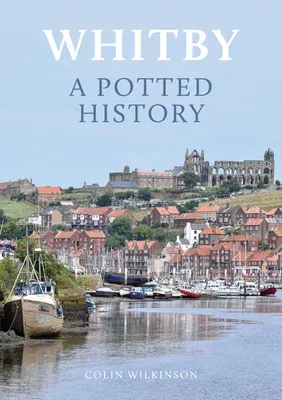Whitby has a fascinating history, changing roles over the centuries from
a religious centre to one of the country's most important ports and
later a resort. The king of Northumbria founded the monastery on the
headland in the seventh century and installed St Hilda as the first
abbess. Although it was abandoned following attacks by Danish raiders
who later settled in the area, the abbey was re-established by the
Normans. Following Henry VIII's Dissolution of the Monasteries, the
harbour and new industries were developed in Whitby, including alum
mining, shipbuilding and transporting coal. Captain James Cook's ships
Endeavour and Resolution were originally Whitby colliers. Shipowners,
merchants and shipbuilders settled in Whitby and built grand houses,
alongside the more humble dwellings of those who worked in the port or
local industries. The town was also known for its whaling fleet and the
production of jet jewellery. From the eighteenth century the town began
to be developed as a resort, with more visitors arriving in the
nineteenth century when the railway was built, and today is a popular
tourist destination. Through successive centuries the author looks at
what has shaped Whitby's history. Illustrated throughout, this
accessible historical portrait of the transformation that Whitby has
undergone through the ages will be of great interest to residents,
visitors and all those with links to the town.

